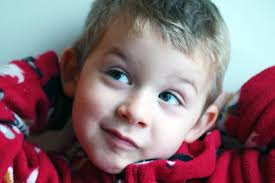Autistas e superdotados preferem ficar sós e não gostam de ter amigos?
(Texto em português e inglês!)
É um equívoco pensar que pessoas
com o Transtorno do Espectro Autista (TEA) ou pessoas com Altas
Habilidades/Superdotação (AH/SD) não gostam de ter amigos. Tanto autistas como
superdotados podem fazer amizades e ter vínculos sociais saudáveis. De modo
geral, eles podem ter amigos e expressar seus sentimentos em relação às pessoas.
Conforme Crompton et. al (2020) muitos
autistas são motivados a ter amigos, relacionamentos e laços familiares
próximos, apesar da caracterização clínica do autismo como uma condição que
afeta negativamente a interação social.
Há caso de autistas que apresentam dificuldades
nas habilidades sociais, este fato pode dificultar o seu relacionamento
interpessoal, porém, isto não quer dizer que eles não gostem de ter amigos (Foley-Nicpon, & Assouline, 2020).
Às vezes, sua forma de fazer amizades, pode
expressar timidez, mas isto pode acontecer pela incapacidade de comunicar seu
desejo de relacionamentos da mesma forma que outras pessoas. (autismspeaks.org,
2021).
No caso de superdotados, de forma geral,
trata-se de pessoas com muita facilidade de se comunicar e de fazer amizades (Kane,
2018; Peterson, 2014; Piechowski, 2014; Piske & Kane, 2020; Piske, 2018, 2020).
Pode
haver casos de isolamento social, e um dos motivos é que eles se sentem
incompreendidos pelas pessoas ao seu entorno. Este fato, pode até gerar
desentendimentos no seu grupo social, muitas pessoas podem não entender o
motivo de seu isolamento.
É recomendável conversar com os superdotados de
forma bastante amigável e se colocar no lugar deles. Toda interação requer a
alteridade e compreensão de todas as pessoas que devem estar cientes sobre a
especificidade e perfil que cada ser humano apresenta, ninguém é igual a
ninguém. Todos nós podemos nos expressar e nos comunicar de formas diferentes.
Autistic and gifted people prefer to be alone
and don't like having friends?
It is a mistake to think that people with
Autistic Spectrum Disorder or gifted people do not like having friends. Both
autistic and gifted people can make friends and have healthy social ties. They
can have friends and express their feelings towards people.
According to Crompton et. al (2020) many autistic
people are motivated to have close friends, relationships and family ties,
despite the clinical characterization of autism as a condition that negatively
affects social interaction.
There are cases of autistic people who have
difficulties in social skills, this fact can make their interpersonal
relationship difficult, however, this does not mean that they do not like
having friends (Foley-Nicpon, & Assouline, 2020).
Sometimes their way of making friends can
express shyness, but this can be due to the inability to communicate their
desire for relationships in the same way as other people. (autismspeaks.org,
2021).
In
case of gifted people, in general, they are people who like to communicate and
make friends (Kane, 2018; Peterson, 2014; Piechowski, 2014; Piske & Kane,
2020; Piske, 2018, 2020).
There
may be cases of social isolation, and one reason is that they feel misunderstood
by the people around them. This fact can even generate disagreements in their
social group, many people may not understand the reason for their isolation.
It is recommended to
talk to gifted people in a very friendly way and put yourself in their places.
Every interaction requires empathy and understanding of all people who must be
aware of the specificity and profile that each human being presents, nobody is
equal to anyone. We can all express and communicate in different ways.
References:
Autismspeaks.org (2021). 11 myths about Autism. https://www.autismspeaks.org/blog/11-myths-about-autism
Crompton, C. J., Hallett, S., Ropar, D., Flynn, E., &
Fletcher-Watson, S. (2020). ‘I never realised everybody felt as happy as I do
when I am around autistic people’: A thematic analysis of autistic adults’
relationships with autistic and neurotypical friends and family. Autism, 24(6), 1438–1448. https://doi.org/10.1177/1362361320908976
Foley-Nicpon,
M., & Assouline, S. G. (2020). High ability students with coexisting
disabilities: Implications for school psychological practice. Psychology in
the Schools, 57(10), 1615-1626.
Kane, M. (2018). Supporting the affective needs of creatively children at home and at school. In F. H. R. Piske; T. Stoltz; C. Costa-Lobo; E. Vázquez-Justo. (Eds.). Educação de superdotados e talentosos: emoção e criatividade. Curitiba: Juruá.
Peterson, J. (2014). Paying Attention to the Whole Gifted Child: Why, When, and How to Focus on Social and Emotional Development. In F. H. R. Piske, J. M. Machado, S. Bahia, & T. Stoltz (Eds.). Altas habilidades/Superdotação (AH/SD): Criatividade e emoção. Curitiba, Juruá.
Piechowski, M. M. (2014). Identity. In F. H. R. Piske, J. M. Machado, S. Bahia, & T. Stoltz (Eds.). Altas habilidades/Superdotação (AH/SD): Criatividade e emoção. Curitiba: Juruá.
Piske, F. H. R. (2018). Altas habilidades/superdotação (AH/SD) e criatividade na escola: o olhar de Vygotsky e de Steiner. Tese. (Doutorado em Educação) - Universidade Federal do Paraná. Curitiba.
Piske, F. H. R. (2020). The importance of socio-emotional development of gifted students. In F. H. R. Piske, T. Stoltz, A. Rocha & C. Costa-Lobo (Eds.). (2020). Socio-Emotional Development and Creativity of Gifted Students. Coimbra: Imprensa da Universidade de Coimbra.
Piske, F. H. R. & Kane, M. (2020).
Socio-emotional development of gifted students: educational implications. In F. H . R. Piske, T. Stoltz, E. Guérios, D. Camargo, A.
Rocha, C. Costa-Lobo (Eds.). Superdotados e Talentosos: Educação,
Emoção, Criatividade e Potencialidades. Curitiba, Juruá.
